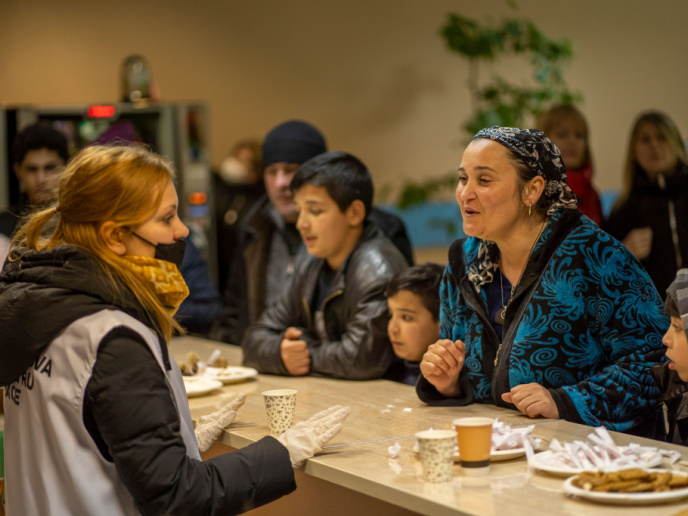Smoothing social inequalities with the power of public narrative
Networks of solidarity and support to vulnerable groups such as Roma women can be reinforced and better organised through adequate theoretical and practical tools. Supported by the Marie Skłodowska-Curie Actions programme, the Narratives4Change project explored how the public narrative framework can be used for the development of individual and collective leadership in different areas of action – such as advocacy and organising in education, health and politics – as well as in cultural and geographical contexts. Through diverse and multifaceted research, Narratives4Change focused on the prerequisites that would enable the public narrative’s capitalisation by Roma women associations in Spain and the Roma women movement in Europe, in general. Narratives4Change’s aim was to provide some further understanding of how the public narrative enables individuals’ agentic action and their capacity to develop agency in others and, therefore, how it can enhance organisational capacity.
Exploring public narrative through resourceful qualitative research
To this end, Narratives4Change conducted two interlinked studies. The first one includes the online 2020 Public Narrative Impact Survey(opens in new window) that maps and captures how the public narrative was being used and traces its impact. “Differently to what we expected, when we asked participants how they used the public narrative, we observed that most of them used it not to communicate with large audiences but to communicate in small events,” reveals Emilia Aiello(opens in new window), project coordinator. The second study focuses on three case studies of campaigns organised or supported either by civic organisations or by public institutions that have implemented public narrative. These are: the ‘Stand Up with the Teachers’(opens in new window) (QMM) campaign in Jordan, led by female teachers employed in private schools and supported by the Ahel organisation; the ‘Drive Michigan Forward’(opens in new window) campaign, led by a coalition of organisations in Michigan; and the ‘Maternity Voices Partnership’(opens in new window) programme, supported by the organisation Horizons-NHS in England. “So far, evidence shows that being trained in public narrative and learning and crafting the framework enables leaders to gain insight into, articulate and then craft their lived experiences in a way that connects with and activates the underlying values of others,” explains Aiello. “It also provides a structured way to communicate shared values, allows sitting down face to face and getting to know each other and enables agreeing a shared agenda based on community needs.”
The story of ‘Self’ and ‘Us’ in the ‘Now’
The 2020 Public Narrative Impact Survey also suggests that pivotal to effective change is developing a leadership grounded on interpersonal relationships characterised by bonds of trust and solidarity, with a clear ‘shared purpose’ – the ‘Us’ dimension. Individual and collective agentic capacities can be developed with the aid of public narrative, even under constrained conditions. Using intentionality in its storytelling, public narrative contributes to the shaping of the ‘Self’ in dialogue with the ‘Us’, and inversely, in the ‘Now’. Shared experiences and values function as unifying elements building at the same time the boundaries of a group. Additionally, via the public narrative framework, leadership and social relationships shift from transactional activities to opportunities for potential social transformation. “The focus moves from the materialistic world to the morally formed one,” emphasises Aiello. Finally, public narrative was surprisingly revealed to be an advantageous universal leadership practice in both ideal and challenging social environments.







